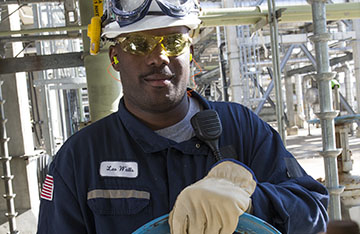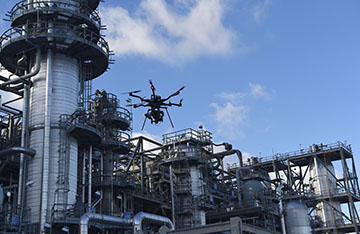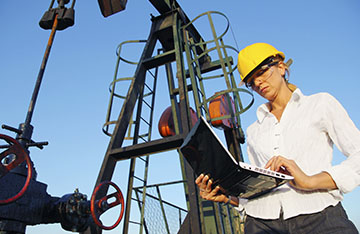Standards News Highlights
API MPMS Standards on Gasoline-ethanol Blends
For more than 15 years, from blending to shipping, API has developed technical references for manufacturers, refiners and retailers of fuel-grade ethanol and gasoline blends, to promote consistency and quality of the product. An underlying goal of all API standards development is to enhance the safety of industry operations by assuring quality, consistency, interoperability and reliability across the globe. In this ongoing effort for safety and sustainability API has now published 4 advanced standards on gasoline-ethanol blends, and these new and updated standards are an example of this important work.
API Recommended Practice 1160, 3rd Edition
The American Petroleum Institute has released the third edition of API Recommended Practice 1160 (RP 1160), Managing System Integrity for Hazardous Liquid Pipelines, which provides a process for establishing safe pipeline operations, including robust assessments of potential risks and establishment of systems to safely and sustainably manage them throughout day-to-day operations
API Specification 6A, 21st Edition
We are pleased to announce the publication of the 21st edition of Specification 6A, Wellhead and Tree Equipment. This new edition provides technical updates that have reached consensus within API’s Subcommittee on Valves & Wellhead Equipment and will now give industry consistent practices in these respective areas of the standard. These updates are reflective of API’s standards program mission to provide a forum for development of consensus-based industry standards, and technical cooperation to improve the industry’s safety performance and competitiveness.
API Recommended Practice 54, 4th Edition
The American Petroleum Institute has released the fourth edition of Recommended Practice 54 (RP 54), Occupational Safety and Health for Oil and Gas Well Drilling and Servicing Operations, which provides procedures for promoting and maintaining safe and healthy working conditions for personnel in drilling and well servicing operations.
The document applies to rotary drilling rigs, well servicing rigs, and special services as they relate to operations on location. First published in 1981, significant revisions in this edition of Recommended Practice 54 include a new section on flowback operations which is key for safe well testing, revised requirements for facility and site process hazard assessment and mitigation, and introduction of formal risk assessments as well as expanded provisions for offshore operations.
Recommended Practice 1182 & RP 80
API Recommended Practices 1182 and 80 have been published in conjunction to enhance safety and operational efficiency of large diameter gathering pipelines. RP 1182, Construction, Operation, and Maintenance of Large Diameter Rural Gas Gathering Lines is complemented by the 2nd edition of RP 80,
API 520 Part II, 7th Ed.
API 520 Part II, 7th Edition, Sizing, Selection, and Installation of Pressure-Relieving Devices in Refineries –Installation has been published. The standard includes details of an Engineering Analysis that can be performed to ensure appropriate installation of pressure-relieving devices.
API Recommended Practice 584, 2nd Edition
API published the Second edition of Recommended Practice (RP) 584, Integrity Operating Windows. The RP provides a guide for classifying Integrity Operating Windows, thus providing the basis for driving performance improvement for process safety management.
API Recommended Practice 1184, 1st Edition
API published the 1st edition of Recommended Practice (RP), Pipeline Facility Construction Inspection. This new standard provides detailed requirements for inspectors covering all aspects of facility construction, stop work authority, a code of conduct for pipeline inspectors and more.
API Specification 4F
API Specification 4F, 5th Edition, Drilling and Well Servicing Structures has been updated to incorporate the latest edition of the American Institute of Steel Construction's (AISC) code update for Allowable Strength Design to make sure components are manufactured to the highest standard, with safety, reliability, and sustainability at the forefront.
API 520 Part I, 10th Ed.
API 520 Part I, 10th Edition, Sizing, Selection, and Installation of Pressure-Relieving Devices in Refineries –Sizing and Selection has been published. The standard provides important sizing procedures that give operators the correct specifications when choosing a pressure-relieving device for their refinery.





